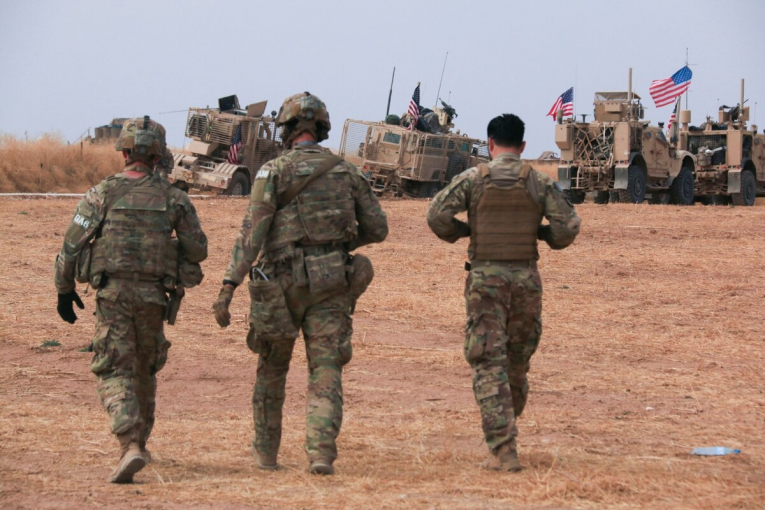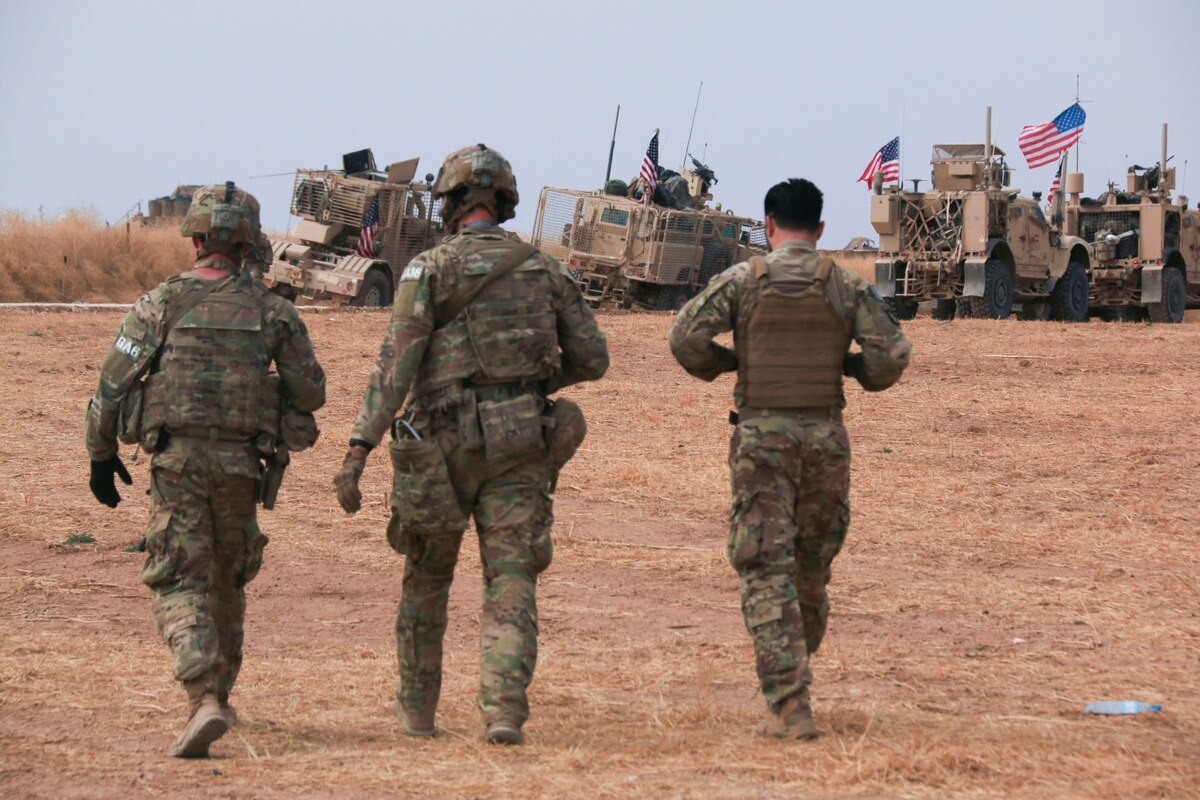

By Alex Hernandez-Zavala
American conflict in the Middle East goes back to 1990 and the beginning of the Gulf War. Nearly 31 years later, America is still involved in Middle Eastern affairs.
31 years of bloody conflict has cost thousands of American lives, broken families and hundreds of thousands of civilian casualties.
To prevent any more grief about future losses at the hands of this never-ending conflict, America should start taking a more quiet diplomatic approach to affairs in the Middle East that involve the United States’ interest, but be ready for conflict with a capable army.
It’s almost tradition at this point for any new administration to toss bombs at countries like Syria, Iran, Iraq and other Middle Eastern countries and label it essential for the expulsion of terrorism and the pursuit of democracy. According to the New York Post, the Biden administration recently launched a missile attack at Syria without briefing Senators about the strikes,
Aside from the lack of transparency with other Senate members, one has to ask, “What will this accomplish, and will there be a means to an end?”
Now, the whole reason behind our stay in the Middle East is an understandable one, even an empathetic one. The terrorist threat shouldn’t be taken lightly. But now, we’ve got a greater humanitarian problem in our hands.
Not to mention the looming nuclear threat Iran still poses to the United States. The New York Times reports, “Iran on Sunday rejected an offer to negotiate directly with the United States in an informal meeting proposed by Europeans to revive the nuclear deal that President Donald J. Trump exited nearly three years ago.”
Given the tumultuous nature of American occupancy in the Middle East, American diplomats and Presidents walk a fine line when dealing with the multiple humanitarian and domestic problems, such as the use of chemical weapons in Syria outlined by the New York Times, facing the Middle East and the United States.
The best way to go about this is best represented through President Theodore Roosevelt’s words, “Speak softly and carry a big stick with you…”
This could be interpreted in various ways, but I see it as diplomatically handling foreign affairs, conservatively, as in not exerting too many resources and flaunting a powerful army in your pocket to sway the outcome to your favor.
The “big stick” will be used as an intimidation tool, to simply make other countries re-think any actions that would make them suffer under America’s big stick.
De-escalating crises to a level where diplomatic approaches would be more successful would be an effective strategy on behalf of the U.S.
An article published by Arabnews shows that contemporary American foreign policy could prove useful to de-escalate conflicts. Though the United Nations will most likely intervene and handle the situation, I think the outcome of this event will show how tumultuous contemporary American foreign policy is.
President Theodore Roosevelt’s way of big stick diplomacy worked. I understand the huge paradigm shift between then and now, but the current way of dealing with foreign entities isn’t efficient.
It may not be the nicest way of handling these issues, but it is effective and efficient. Other countries will have to think twice about not complying with American policy or demands and feeling the consequences thereafter.
The U.S. footprint in the Middle East will be ingrained in Americans’ minds, and of the world, for years to come. Let us learn from our mistakes and change the way we handle these conflicts in the future.

Alex Hernandez-Zavala is a first-year student at UC Davis, double majoring in Psychology and Sociology. He was born in the Central Valley and raised in Salinas, California.
Support our work – to become a sustaining at $5 – $10- $25 per month hit the link:

“American conflict in the Middle East goes back to 1990 and the beginning of the Gulf War. Nearly 31 years later, America is still involved in Middle Eastern affairs.”
Actually it goes back to WWII. Direct involvement of US Military forces goes back to 1990 but the underlying policies that led to that military intervention are much older.
So…the beatings will continue until morale improves?
As for the success of “big stick” diplomacy… Roosevelt’s own child died in one of those imperialist adventures, and he spent his later years depressed, mourning that child…
Meanwhile, the U.S. has practiced such diplomacy in Iran, replacing its democratically-elected government in 1953 with Reza Pahlavi (the Shah). When the Ayatollah’s came to power, they raided the Shah’s secret police’s safe houses and found ovens large enough to roast humans, and stacks of severed limbs. Yep, that’s what “success” looks like.
The year previous, the Eisenhower administration practiced “big stick” diplomacy with Vietnam, tossing out the treaty that ended World War II to install an abusive dictator (Diem). The treaty specified there would be a plebiscite to unite North and South Vietnam, but the U.S. denied the Vietnamese the privilege of democracy because it didn’t like how the polling looked–Ho Chi Minh would have won by a wide margin.
That worked out so well, didn’t it? How many died in Vietnam? Millions, if you count Vietnamese.
I’m surprised that after the Trump administration anyone would advise the U.S. to be even more thuggish and high-handed, but that’s sure what this column looks like. Of course the issues in the region aren’t helped by the way that Europe’s colonial powers divided the Ottoman Empire to keep regional disputes alive, dividing and ruling this very rich region of Asia–lots of oil.
I’m not sure there are any simple solutions to the mess Westerners were instrumental in creating in the Middle East, but a return to “gunboat diplomacy” sounds far too simplistic, and frankly disrespectful.
I’m not sure why others attribute this to Trump. As I recall, for example, he criticized Bush regarding the Iraq war.
Regardless of what one thinks of Trump, he was no war-monger. Probably much less so than any other recent administration.
It was a myth that he couldn’t be trusted with “the button” (or the “football”, or whatever they call it).
Though he might have advocated the “big stick” approach (I’d guess), despite having reportedly small hands. 🙂
Trump also reduced troop involvement in both Iraq and Afghanistan. He actually wanted to withdraw more but his hands were tied by Congress. It didn’t take Biden long to move troops into and bomb Syria.